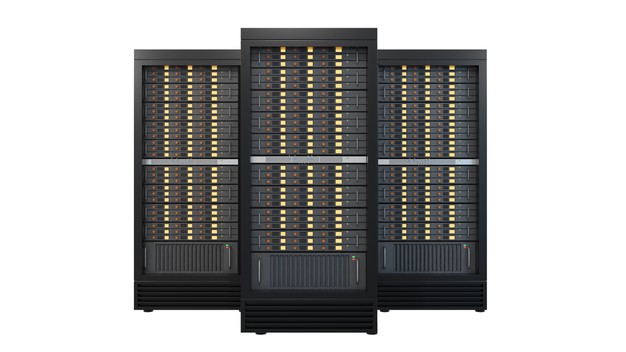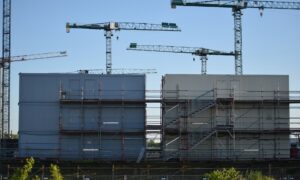In general, a server can be considered as a device that has a particular set of programs or protocols which provide various services. A set of devices, a server, and its clients form a client/server network, and it provides routing systems and access to information and stored data centrally. This article is about to explain everything about Tower Server System.
What Does Mean by Tower Server System
A tower server can be defined as a computer that is solely intended to be used as a server. It is built in an upright cabinet that stands alone. This cabinet is called a tower, which is similar in shape and size to the cabinet used in the case of a tower-style personal computer. They are most popular due to their scalability and reliability features. An unlimited number of servers can be added to the existing networks mostly based on the independent nature of each tower server.
Tower Server Systems are ideal for small companies and start-ups because most often they do not have any large spaces to accommodate larger rack-based server computing systems.
Basic Overview about Tower Server System
This type of server supports all of the most basic applications, which include applications such as system management, file management, ER applications, print collaboration, distribution, and system security.
A tower server is very robust but simple in structure. The component density in the tower servers is very low and this results in easier cooling of the components in a tower server. This leads to the prevention of possible damage, overheating, and downtime of the servers.
The factor of scalability is high for tower servers and this makes it much easier to add new servers to the existing servers and this leads to adaptable integration. Also, the maintenance required for this kind of server is way less than the other types of servers in the market. There is the possibility of easy identification both when on the network or physically, as all the data in the tower servers are stored in a single tower rather than on multiple devices
The cabling in tower servers though can be very complicating. The presence of man tower servers in a single location can often be disturbing and noisy as each tower requires a dedicated fan. Individual components like a monitor, mouse, or keyboard are required to operate each tower server. In replacement to this, you can also do with a KVM (Keyboard, Video, and Mouse) switch is required for operating multiple towers with a single set of equipment. Also, in comparison to other types of servers, namely the blade servers and rack servers, the tower servers tend to be bulkier.
When should one opt for a Tower Server System?
- If a company is a small or medium-sized venture, and it has a modest budget one should opt for a tower server. A tower server is enough for establishing a functional IT infrastructure.
- Tower Server is an option when one wants to stay flexible on the number of servers needed for functionality. Tower servers can be connected to an unlimited number of new servers depending on the need. This allows for making quick adjustments for fast-growing companies.
- Tower Servers can be good options when one does not have a room dedicated for servers. A tower server can be practically be placed anywhere. With a bit of high pricing, you can go for the silent servers available in the market which will save even more rooms for you as they can be placed even directly in the working environment.
- Tower Servers are the need of the hour if you are looking to save space. The Tower Servers are no bigger than the traditional tower computers in use currently and can find space in any office. If budgeting is not an issue, then you can surely go for the Micro servers available because they are even smaller and also quieter.
- If you are searching for fail-safe security and performance, you should surely opt for tower servers. This can be a deciding factor in smaller companies where these correspond to the central IT hubs.
Advantages of Tower Server System
- This type of server can be cooled down easily because the component density is quite low for this kind of server
- It has high scalability, which means you can add an unlimited number of servers to the existing networks.
Disadvantages of Tower Server System
- As a set, tower servers are bulkier and heavier than the equivalent blade or rack server
- The process of cabling for a large set of tower servers can be quite complicated.
- Each tower requires its own dedicated fan. This makes setting up and using a group of several air-cooled tower servers a noisy affair.
Smaller IT companies and start-up ventures should surely be looking to invest in Tower server systems to use the minimum spaces available to them and also to work these devices as central IT hubs.






























































